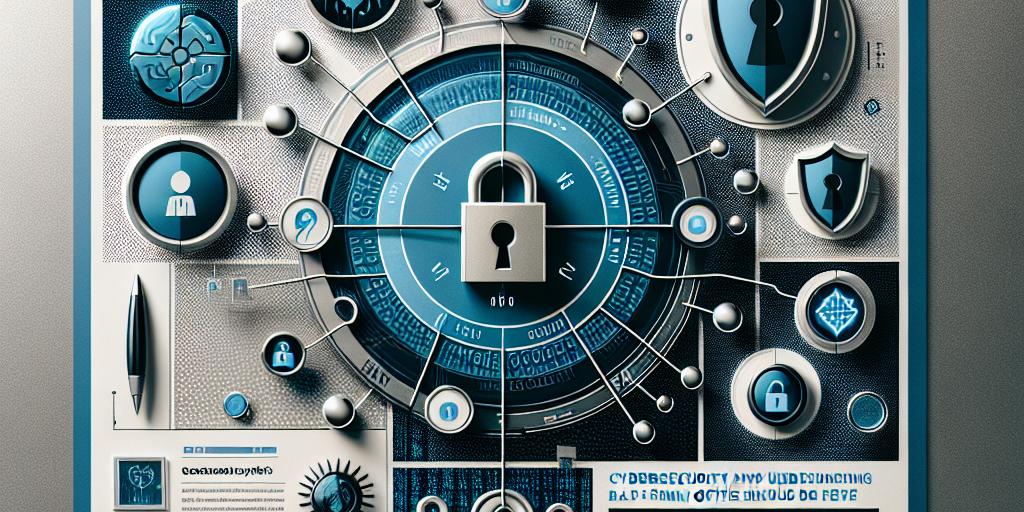In today’s digitally driven environment, cybersecurity remains a top concern for families managing significant wealth through family offices. However, misinformation about cybersecurity can leave these entities vulnerable while reinforcing risky behaviors. This article seeks to debunk common cybersecurity myths and provide vital insights for family offices that will help them protect their assets and information.
Myth 1: Cybersecurity is Just an IT Problem
Reality
Many family offices mistakenly believe that cybersecurity is solely the responsibility of their IT department or external service providers. While technology plays a fundamental role in cybersecurity, it is far from just an ‘IT issue.’ Cybersecurity is a company-wide concern that must be integrated into the culture and practices of a family office.
Best Practice: Implement training programs for all employees, including management and family members, on cybersecurity awareness. Regularly update these sessions to adapt to evolving threats and encourage a mindset of vigilance.
Myth 2: We are Too Small to be Targeted
Reality
A common misconception is that cybercriminals only target larger corporations or those with public profiles. In fact, family offices—with their unique combination of wealth, assets, and sometimes lax security—are increasingly attractive targets. Small to medium-sized enterprises (SMEs) often lack robust security protocols, making them easier prey.
Best Practice: Conduct regular security assessments, regardless of size. Establish a comprehensive cybersecurity strategy, including risk management, threat detection, response plans, and recovery protocols.
Myth 3: Antivirus Software is Enough
Reality
While antivirus software is an essential component of a cybersecurity strategy, it is not a complete solution. Cyber threats have evolved to bypass traditional protections through methods like phishing, social engineering, and other sophistication tactics. Relying solely on antivirus software can provide a false sense of security.
Best Practice: Adopt a multi-layered security approach. This includes firewalls, intrusion detection systems, lifecycle management, user authentication protocols, and data encryption. Regularly update all software, as updates often include patches for known vulnerabilities.
Myth 4: Cybersecurity is One-and-Done
Reality
Some family offices believe that once they implement a cybersecurity protocol, they can sit back and relax. This is a dangerous assumption; cyber threats are continuously evolving, and threats can arise at any moment. A static approach to cybersecurity can leave gaps in your defense.
Best Practice: Commit to continual improvement. Schedule regular audits and updates to your cybersecurity measures. Stay informed about the latest threats in the cybersecurity landscape and adapt your strategies accordingly.
Myth 5: All Data is Secure in the Cloud
Reality
Cloud computing does offer advantages in terms of scalability and convenience, but it also introduces new vulnerabilities. Many believe that data residing in the cloud is inherently safe due to the fail-safes of the provider. However, security breaches and data losses can still occur if proper measures are not taken.
Best Practice: When using cloud services, ensure that you understand the security measures in place. Encrypt sensitive information before uploading it to the cloud, and consider which tools offer end-to-end encryption. Implement access controls and monitor data usage to mitigate risks.
Myth 6: Cybersecurity is Too Expensive
Reality
Cost considerations often deter family offices from investing adequately in cybersecurity; however, the financial repercussions of a cyberattack can far outweigh the initial investments. It’s essential to view cybersecurity as a long-term investment in the protection of your family’s legacy rather than an expense.
Best Practice: Develop a cybersecurity budget that reflects the importance of this issue. Invest in security tools, training, and insurance policies that mitigate risks and cover potential losses.
Myth 7: Only Technical Experts Can Understand Cybersecurity
Reality
While technical expertise is valuable, good cybersecurity practices are not limited to IT professionals. Cybersecurity is rooted in human behavior and risk management, making it important for everyone involved in the family office, including family members, to understand its significance.
Best Practice: Simplify cybersecurity concepts and practices to make them accessible to everyone in the family office. Clear communication and the establishment of best practices, such as strong password policies and vigilance against suspicious activities, can empower all members to play a role in protection.
Conclusion
As family offices navigate the complexities of wealth management and preservation, understanding the reality behind cybersecurity myths is vital. By fostering a culture of security awareness, promoting robust practices, and regularly updating their frameworks, family offices can significantly reduce risks and protect their invaluable assets. In a digital world rife with threats, proactive measures and informed strategies are essential to safeguarding family legacies for generations to come.










